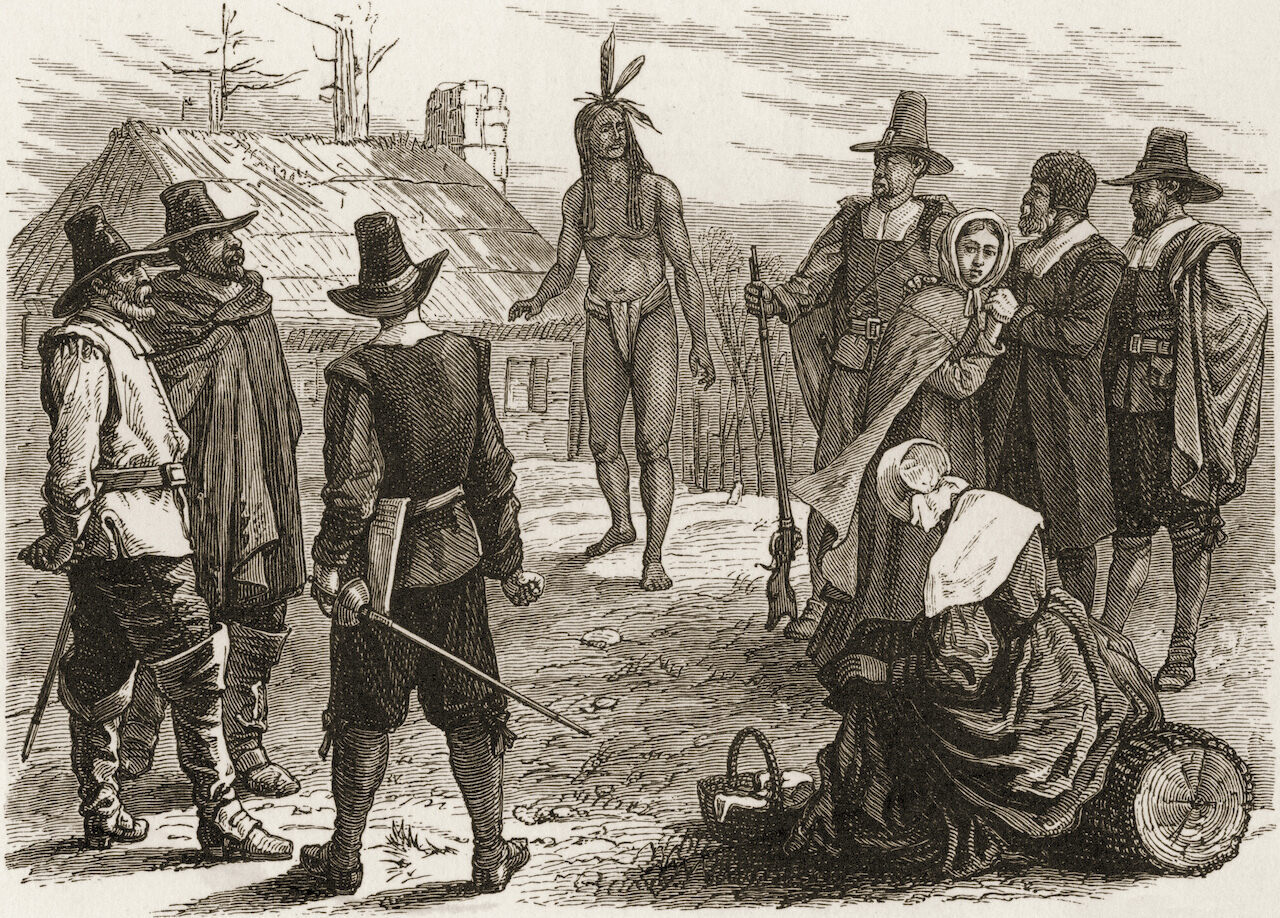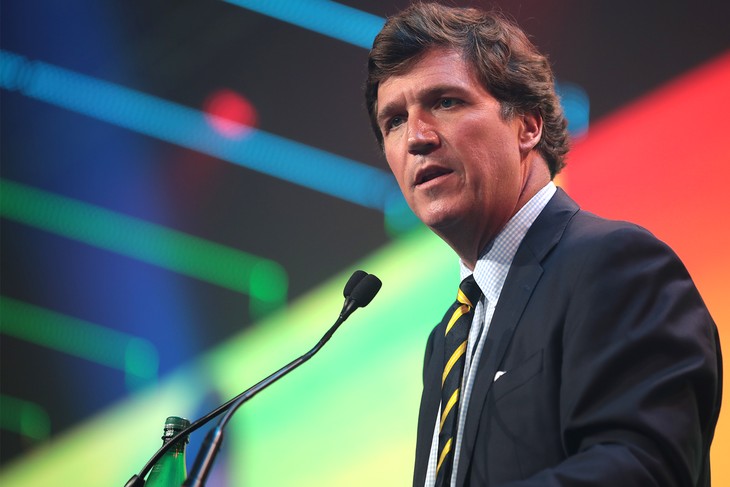Barack Obama’s Six Most Impeachable Offenses
In keeping with our new tradition of trying ex-presidents.
Now that we have established
that even ex-presidents can be tried in the Senate, the time may be
right for a fresh look at ex-President Barack Obama’s presidential
crimes and misdemeanors. To get the tumbrils rolling, let me suggest the
following six areas of investigation, ranked from probably worthy of
impeachment to possibly worthy of imprisonment.
The challenge here was not to find six but to whittle the list down
to six. Left on the cutting room floor are Obama extra-constitutional
DACA authorization, his duplicitous Iran deal, his misadventures in
Syria and Iraq, his Nixonian “Internal Threat Program,” his
responsibility for the lethal “Ferguson effect,” and his spying on
journalists, all of which abuses dwarf any of President Trump’s
misdeeds, real or imagined.
6. Pigford
Said the late Andrew Breitbart
in December 2010, “All I’ve been doing is eating, breathing, sleeping
Pigford, researching Pigford … ” Breitbart was referring here to Pigford v. Glickman, a multi-tiered lawsuit that offered a sneak preview of what “reparations” might one day look like.
The money in play was originally awarded as compensation for black
farmers allegedly denied USDA loans. Before the Pigford gravy train left
the station, however, thousands of random blacks and other minorities,
many of whom had not seen a farm since CBS canceled Green Acres, hopped on board.
Reporting on the story seemed to have died with Breitbart in 2012, but in April 2013, with the president safely reelected, the New York Times surprised its readers with a random act of journalism. In a major exposé, reporter Sharon LaFraniere of the Times
described Pigford as “a runaway train, driven by racial politics,
pressure from influential members of Congress and law firms that stand
to gain more than $130 million in fees.”
A Berkeley professor said, “It was just a joke. I was so disgusted. It was simply buying the support of the Native-Americans.”
The Obama administration committed billions to female and minority
farmers who had never even filed a bias claim. “From the start, the
claims process prompted allegations of widespread fraud and criticism
that its very design encouraged people to lie,” wrote LaFraniere, “Those
concerns were played down as the compensation effort grew.” The Times
estimated the total cost of the swindle at about $4.4 billion, in the
words of one USDA analyst, “a rip-off of the American taxpayers.”
The unusually honest Times article tied Obama directly to
this race-based boondoggle. As a senator, Obama had supported expanding
Pigford compensation. As president, he pressed for an additional billion
or so to make this happen. Obama’s billion-dollar demand maddened the
career attorneys involved in the case given that the courts, including
the Supreme Court, had already ruled against compensating the various
female, Hispanic, Native American, and pretend black “farmers” who
clamored for a slice of the Pigford pie.
Politics drove much of the decision-making. According to LaFraniere,
President Bill Clinton had recruited a politico “known for his expertise
in black voter turnout” to help launch the program. The political
courtship of Native Americans was even more flagrant. A Berkeley
professor who had prepared a 340-page report on the case told
LaFraniere, “It was just a joke. I was so disgusted. It was simply
buying the support of the Native-Americans.”
LaFraniere concluded her report with a focus on Thomas Burrell, head
of an entity called the Black Farmers and Agriculturalists Association.
She recounted his rollicking speech to a group of several hundred
African Americans at a Little Rock church. “The judge has said since you
all look alike, whichever one says he came into the office, that’s the
one to pay — hint, hint. There is no limit to the amount of money, and
there is no limit to the amount of folks who can file.”
True to form, Obama does not so much as mention Pigford in his newest memoir, A Promised Land. His readers will not miss it. They have likely never heard of it. The Times story produced not the faintest echo in the echo chamber.
5. Fast and Furious
In December 2010, Mexican banditos killed Border Patrol Agent Brian
Terry in Arizona using two AK-47-style weapons purchased courtesy of a
bizarre program known as “Fast and Furious,” the logic of which
continues to defy easy explanation 10 years after Terry’s murder.
Most likely, the White House thought that if American-purchased guns
were allowed free flow across the border, a steady stream of news about
Mexican mass killings with American weapons might persuade the American
public to support a crackdown on guns. No other explanation makes sense.
Terry’s death forced this covert program into the open. Obama responded
by pleading ignorance. Attorney General Eric Holder responded by lying.
In February 2011, Holder’s Department of Justice denied there was any
such program. A month later, Obama admitted to Mexican journalist Jorge Ramos
that “there may be a situation here which a serious mistake was made.”
Although insisting that neither he nor Holder had anything to do with
Fast and Furious, Obama noted that Holder had assigned an inspector
general to investigate. “And you were not even informed about it?” asked
an incredulous Ramos. “Absolutely not,” said Obama.
With the media in his pocket, Holder stonewalled from day one. During a House hearing in May 2011, Republican Darrell Issa asked
Holder when he first learned about the program. Said Holder, “I
probably heard about Fast and Furious for the first time over the last
few weeks.” Republican Jason Chaffetz caught the inconsistency. He noted
that six weeks prior, on March 22, Obama had told Ramos that Holder had
already launched an investigation. “How did it not come to your attention?” Chaffetz asked.
Holder had no good answer. He claimed the DOJ’s inspector general was
looking into the program as though that were attention enough. He also
showed no particular interest in responding to a House subpoena in
anything resembling good faith.
Holder’s testimony on Fast and Furious scarcely made the news. On Comedy Central,
reputed comedian Stephen Colbert, reflecting the indifference of Big
Media, laughed off Fast and Furious as “the biggest scandal in history I
have ever forgotten to talk about.” The family of Brian Terry did not
quite get the joke. Nor did the families of the hundred or more Mexicans
killed with Fast and Furious guns.
One final postscript, as reported by Politico
in June 2012, the House voted to hold Holder in contempt of Congress
for his failure to turn over relevant documents, “the first time
Congress has taken such a dramatic move against a sitting Cabinet
official.” Seventeen Democrats signed on to the resolution. Only 67
Democrats voted against it. The vote may have been the purest bipartisan
moment in Obama’s misbegotten first term. In A Promised Land, Obama makes no mention whatsoever of the program or the death of Brian Terry.
4. Libya
In March 2011, President Obama authorized military intervention in
Libya without congressional approval. To justify the impromptu attack
Obama claimed
that if he had delayed just one more day, “Benghazi, a city nearly the
size of Charlotte, could suffer a massacre that would have reverberated
across the region and stained the conscience of the world.”
Two weeks later, Alan Kuperman, a professor of public affairs at the University of Texas and author of The Limits of Humanitarian Intervention, did the math Obama still refuses to do. Writing in the Boston Globe,
Kuperman made the simple point, “The best evidence that Khadafy did not
plan genocide in Benghazi is that he did not perpetrate it in the other
cities he had recaptured.”
As Kuperman explained, rebel forces did what rebel forces have been
doing since the dawn of the age of mass media: they faked a humanitarian
crisis to save their futile cause. Kuperman had no reason to embarrass
Obama. A Democrat, he had previously served as legislative director for
then-Rep. Chuck Schumer.
Gaddafi, for all his despotic flaws, had recently abandoned his WMD
program and his terrorist arm. Obama admits as much. “It’s fair to say
that I found the idea of waging a new war in a distant country with no
strategic importance to the United States to be less than prudent,” he
writes in A Promised Land.
Readers curious about why he intervened may have to wait for Volume
II of the memoir. This volume ends with Osama bin Laden’s death in May
2011. The unraveling of Libya that leads to September 2012 attack on the
Benghazi consulate goes unreported. Hint: Obama will blame the fiasco
on Hillary.
3. The Weaponization of the IRS
Democrats feared the Tea Party. Having grown used to manufacturing
dissent, they had not seen a genuine, grassroots movement of such
magnitude in the past half-century. To neutralize it, Obama played a
card whose spots would be worn thin by the end of his presidency. Yes,
Virginia, the race card.
Almost immediately after the Tea Party emerged, the IRS began using its vast power to suppress it.
“By September [2009],” Obama writes in A Promised Land, “the
question of how much nativism and racism explained the Tea Party’s rise
had become a major topic of debate on the cable shows.” The
passive-aggressive Obama makes this observation as though the “cable
shows” had some mission loftier than race-baiting conservatives.
If blind to the motives of Tea Party members, Obama could see clearly
the threat they posed to his reelection. Obama loyalists had no trouble
picking up the vibes from the White House. Still unclear is where these
loyalists got their marching orders, but what is undeniable is that
almost immediately after the Tea Party emerged, the IRS began using its
vast power to suppress it.
In a predictably anodyne report
issued in 2013, the inspector general of Obama’s Treasury Department
traced the beginning of the IRS crackdown to early 2010. As the report
conceded, “The IRS used inappropriate criteria that identified for
review Tea Party and other organizations applying for tax-exempt status
based upon their names or policy positions instead of indications of
potential political campaign intervention.”
In 2014, Tea Party organizer Catherine Engelbrecht testified
before the House on what “inappropriate criteria” felt like at the
ground level. No sooner did she file to incorporate her two groups than
she found herself “a target of this federal government.” Although
neither she nor the business she ran with her husband had ever been
audited before, in the next several years they would undergo more than
15 audits or investigations by governmental agencies.
These audits occurred in addition to the “multiple rounds of abusive
inquiries” she endured from IRS agents wanting to see all her Facebook
and Twitter entries, the contents of her speeches, and the schedule of
her speaking engagements. In concluding her testimony, Engelbrecht asked
the Committee “to end this ugly chapter of political intimidation.”
In 2017, the Department of Justice settled with Engelbrecht and other
Tea Party groups that had been protesting IRS abuse since 2010. The
damage, however, had long since been done. The silencing of the Tea
Party helped assure Obama’s 2012 reelection. None of this story makes it
past the gatekeepers of A Promised Land.
2. The Benghazi Deception
Much has been written about the various blunders that led to the
attack on the American consulate in Benghazi on September 11, 2012. Not
until 2016, however, when Kenneth Timmerman released his book Deception, did anyone write in depth about the filmmaker Obama held responsible for those attacks: Nakoula Basseley Nakoula.
Timmerman describes the White House response to Nakoula’s video as
“disgraceful, un-American, illegal, and a clear violation of Nakoula’s
constitutional rights.” If anything, the major media’s treatment of
Nakoula was more disgraceful. In the aftermath of Benghazi, journalists
shamelessly conspired with the White House to sell a conspicuously false
story that put an innocent man in prison.
The dissembling began while the consulate was in flames and the
attack still underway. Needing to draw attention away from the
administration’s duplicitous meddling in Libyan affairs, then-Secretary
of State Hillary Clinton released a memo on the night of September 11
blaming the attack on some “inflammatory material posted on the
Internet.” Obama’s role in the creation of this story line has never
been explored for the simple reason that no one knows where Obama was
that night or what he did. He has never been asked.
As Timmerman explains in convincing detail, the video had nothing to
do with the pre-planned assault on the Benghazi compound. “There were
never any demonstrations in front of either U.S. diplomatic facility in Libya. Ever. That was just a full-throated lie,” he writes.
On Sunday, September 16, 2012, National Security Adviser Susan Rice
dutifully played her role in the charade. “Our current best assessment,
based on the information that we have at present, is that, in fact, what
this began as, it was a spontaneous — not a premeditated — response to
what had transpired in Cairo,” Rice told Jake Tapper on ABC’s This Week. She repeated the same obvious lie on four other shows that morning.
Knowing his base, Obama went looking for a reliably clueless audience to hear his take on Benghazi and found one on the David Letterman Show. “Here’s what happened,” Obama told his wide-eyed host
a week after the assault. “You had a video that was released by
somebody who lives here, sort of a shadowy character who — who made an
extremely offensive video directed at Mohammed and Islam.”
The same president who defended the First Amendment rights of the
Ground Zero imam showed a shocking indifference to those of Nakoula, an
American citizen of long standing and a Coptic Christian whose
co-religionists were being slaughtered by Muslims in Egypt.
With the media cheering on the administration, federal probation
officers took Nakoula into custody on September 15 under the pretext of a
parole violation. They held him in secret without charge or without
access to an attorney — “an extrajudicial prisoner in the United States
of America,” writes Timmerman. That a filmmaker was about to spend a
year in federal custody for producing a perfectly legal satire inspired
not a single Big Media journalist to cry foul.
1. Russia
It is always possible that Special Counsel John Durham will surprise
us with his long-awaited report, but even if he does, Barack Obama will
almost assuredly escape indictment. Based on recent precedent,
impeachment would seem a likely way to proceed.
Obama deserves all the credit for what transpired — arguably the greatest political crime in American history.
Thanks to another Susan Rice misjudgment, we know about Obama’s
presence at an unusual meeting that took place in the White House on
January 5, 2017. In conference with Obama was his national security team
including all the usual suspects: James Comey, John Brennan, Joe Biden,
James Clapper, Rice, and acting Attorney General Sally Yates.
Following the meeting, Obama asked Yates and Comey to stick around
along with Rice, his trusted scribe and factotum. Obama had a reason for
singling out Comey and Yates. Unlike the others, they were staying on
in their jobs. On the very day at the very moment Trump was being
inaugurated, Rice sent to “self” a peculiar email. It read:
President Obama began the conversation by stressing his
continued commitment to ensuring that every aspect of this issue is
handled by the Intelligence and law enforcement communities “by the
book.” The President stressed that he is not asking about, initiating or
instructing anything from a law enforcement perspective. He reiterated
that our law enforcement team needs to proceed as it normally would by
the book.
What credibility Rice had to spare after her Benghazi dissembling she
squandered with this comically disingenuous email. She was trying to
absolve Obama of signing off on the coup against President-elect Donald
Trump. Unfortunately for Obama, she proved to be just as clumsy and
obvious as on the fateful Sunday shows.
Sens. Charles Grassley and Lindsey Graham saw right through the
smokescreen. “Despite your claim that President Obama repeatedly told
Mr. Comey to proceed ‘by the book,’ ” the good senators responded
to Rice upon discovering the email, “substantial questions have arisen
about whether officials at the FBI, as well as at the Justice Department
and the State Department, actually did proceed ‘by the book.’ ”
If there were a book, CIA Director John Brennan likely ghosted it
under Obama’s name. In authorizing a coup against an elected president,
as only a sitting president could have done, Obama deserves all the
credit for what transpired — arguably the greatest political crime in
American history. And if that is not an impeachable offense, what is?












